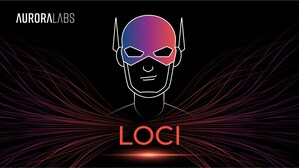- Continuous enthusiasm for EV adoption with 49% of respondents stating that they own or plan to own an EV in the next 3 years.
- 62% of EV owners stated that they preferred to new features after the sale.
- 50% expect vehicles to receive more than 6 OTA updates per year.
TEL AVIV, Israel, Nov. 7, 2023 /PRNewswire/ -- Aurora Labs, provider of Vehicle Software Intelligence solutions, announces the results of its fourth consecutive annual Automotive Software Survey conducted together with the leading market analysis firm TechInsights (formally Strategy Analytics). The study surveyed more than 200 experts worldwide from the automotive industry, receiving a high level of responses from automakers, T1s, semiconductor vendors and independent software vendors.
The survey reveals continuous enthusiasm about EV adoption with 49% of respondents stating that they own or plan to own an EV in the next 3 years, much the same as in 2022. However, it was interesting to observe the correlation between EV ownership and a general acceptance for new approaches to OTA SW updates, remote maintenance and new business models.
New diversified revenue streams for OEMs:
This year's survey also includes beneficial outlooks for automotive manufacturers. Paying for features after the point-of-sale proved more popular this year, bolstered by the greater enthusiasm of EV owners, as well as greater preference to download new features. "This year's fourth annual Automotive Software Survey highlighted an industry that is still very much undergoing rapid change, but which is starting to see the way forward with the OEM's clear focus on implementing new E/E architectures and internal processes for the EVs," says Roger Ordman, EVP Marketing & Business Development at Aurora Labs.
51% of EV owners stated that they were willing to pay $20 per month or more, compared with 38% of non-EV owners for vehicle services and features such as software downloads, 21% would even pay up to $50 a month. It was also observed that 62% of EV owners stated that they preferred to download new features, compared with 48% for non-EV owners.
These results indicate that consumers are open to new business models that could bring OEMs additional and recurring revenue streams through software sales. An additional finding supports that conclusion: 64% expect up to 10% additional revenue for OEMs from selling software features Over-The-Air (OTA) by model year 2027.
Seamless and transparent OTA updates are becoming an inevitable key parameter.
When it comes to dealing with OTA updates, the survey highlights an industry that is showing signs of real maturity. It is evident that new industry partnerships will play a very critical role in meeting the challenges of software-defined vehicles. It was observed that 67% of EV owners had experienced more than one OTA update, with a further 10% receiving at least one OTA update, while only 24% of non-EV owners had experienced any OTA updates.
50% of EV owners also expect up to six Over-The-Air (OTA) Updates per vehicle, per year by 2025. Furthermore, it was observed that 37% of owners want OTA updates to be instant without the vehicle being offline during the update process. Lastly, 80% believe that bug fixes or security patches must be updated automatically and transparently.
Vehicle Software Intelligence for enhanced quality
It was observed in the respondent's answers that there is an increased confidence in the automaker's software skills as well as a bigger expectation for automakers to develop code in-house. "There was an increase to the proportion of respondents that were ''very'' confident that major auto manufactures will have the required software development skills in-house by 2025 to develop advanced E/E architectures, after year-on year falls," says Ian Riches, VP Automotive Practice at TechInsights.
However, it was also evident that more than 60% believe that it is getting more difficult to debug software errors after the vehicle has shipped from the factory. The respondents highlighted that "ensuring software reliability and safety" was the single most challenging aspect of automotive software development, cited by over 27% of the respondents in the survey.
Download the full report to gain more insights behind these data points and to reveal additional stats and insights into the state of automotive software in 2023.
About Aurora Labs
Aurora Labs is pioneering the use of AI and Software Intelligence to solve the challenges of automotive software development. Aurora Labs brings AI-based Vehicle Software Intelligence to the entire lifecycle of a vehicle from software development to testing, integration, quality control, continuous certification and on-the-road over-the-air software updates. Aurora Labs focuses on the embedded systems that are key to the development of the software-defined vehicle and enables automotive manufacturers to more efficiently manage software costs and the resources required to develop and manage new vehicle features and mobility services.
The Company's products have been adopted on customer platforms around the world, and with a commitment to conform and meet ISO-26262/ASIL-D and ASPICE-L2, will be in vehicles in coming car models. Aurora Labs, founded in 2016, has raised approximately $100m and has been granted 100 patents. The Company is headquartered in Tel Aviv, Israel, with offices in Germany, North Macedonia, the US, and Japan.
For more information, contact:
HBI Helga Bailey GmbH
Martin Stummer | Lena Hahn | Nils Langewald
Tel.: +49 (0) 89 99 38 87 -34 / -37 / -41
E-Mail: [email protected]
SOURCE Aurora Labs





Share this article